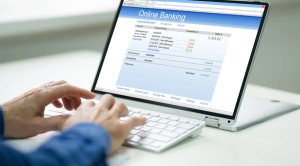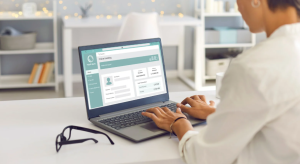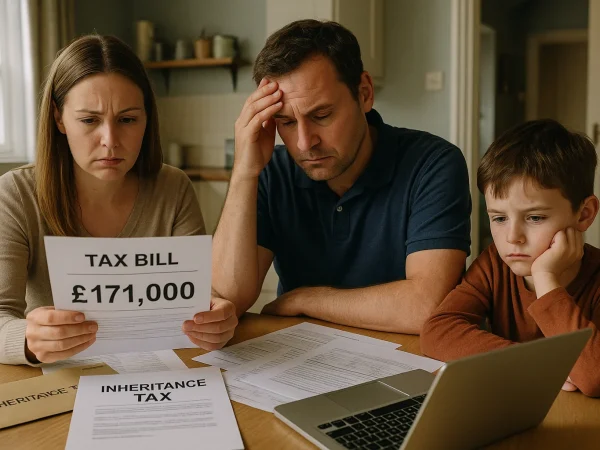
DWP Bank Account Checks 2025 | Why and How They Happen?
The Department for Work and Pensions (DWP) regularly checks bank accounts to ensure benefit payments go to those who meet the eligibility criteria. With fraud detection becoming a government priority, these checks have intensified, affecting thousands of claimants across the UK.
If you’re receiving Universal Credit, Pension Credit, or other benefits, understanding how and why the DWP might investigate your finances is crucial. This article explores the reasons behind DWP bank account checks, the legal framework, and how you can prepare if your account is flagged.
Staying informed helps you avoid unnecessary stress and ensures compliance with benefit regulations.
What Are DWP Bank Account Checks and Why Do They Happen?

The Department for Work and Pensions (DWP) conducts bank account checks to ensure that benefit claimants meet the eligibility criteria for financial assistance.
The government distributes billions of pounds in welfare payments each year, making fraud prevention a top priority. Bank account checks allow the DWP to verify that recipients accurately report their income and assets.
This process is not just about catching fraud but also about ensuring fairness. The UK’s benefits system is designed to support individuals and families in need, and fraudulent claims take away resources from those who genuinely require assistance.
By conducting regular and targeted checks, the DWP can confirm that only eligible individuals receive support while preventing taxpayers’ money from being misused.
The DWP has legal authority to conduct these checks under the Social Security Administration Act 1992. However, these checks must be done lawfully, respecting claimants’ rights under the Data Protection Act 2018.
How Does the DWP Check Bank Accounts?
The DWP does not have free access to personal bank accounts but instead uses a combination of scheduled reviews and trigger-based investigations to assess financial data.
Scheduled Reviews
These are routine checks conducted at regular intervals. The frequency of reviews depends on the type of benefit received.
- Universal Credit: Some claimants are reviewed quarterly, while others may only face annual checks.
- Pension Credit: As this benefit is based on savings and assets, claimants may be reviewed annually or upon reaching certain financial thresholds.
- Employment and Support Allowance (ESA): Reviews may occur when a claimant’s circumstances change or as part of a broader audit.
These checks typically align with key financial dates, such as the start of a new tax year or the renewal of benefit claims. The DWP may request updated financial statements, tax records, or other documentation during these reviews.
Unscheduled (Trigger-Based) Checks
Trigger-based checks occur when certain activities or reports suggest a possible discrepancy in a claimant’s financial status. The DWP uses several indicators to initiate these checks:
- Flagged Transactions: Large or unusual deposits and withdrawals may raise suspicions, particularly if they don’t align with the claimant’s reported income.
- Third-Party Reports: If another government department (such as HMRC) or a whistleblower reports potential fraud, the DWP may launch an investigation.
- Cross-Referencing Data: The DWP has agreements with banks, HMRC, and local authorities to compare financial records against benefit claims.
These unscheduled checks are more intensive and may involve a detailed analysis of financial records, requiring claimants to provide explanations for specific transactions.
Who Is Most Likely to Have Their Bank Account Checked by the DWP?
Certain benefit claimants are more likely to have their bank accounts checked due to the nature of their claims.
Individuals who receive means-tested benefits—where eligibility is determined by income and assets—are at higher risk of being audited.
The following groups are more likely to face DWP bank account checks:
- Universal Credit Claimants: As this benefit fluctuates with changes in income, bank account checks are frequently used to verify earnings.
- Pension Credit Recipients: Since eligibility depends on savings and assets, the DWP may investigate claimants with sudden increases in their bank balances.
- Jobseeker’s Allowance (JSA) Claimants: Those receiving income-based JSA are subject to financial scrutiny to ensure they meet the low-income threshold.
- Employment and Support Allowance (ESA) Claimants: Because ESA is awarded based on health conditions and financial need, the DWP may verify whether claimants have undeclared income.
Other factors that increase the likelihood of being investigated include:
- Frequent changes in reported income
- Large sums of money being deposited without explanation
- Reports from third parties suggesting financial misrepresentation
What Are the Financial Transactions That Can Trigger a DWP Bank Account?

For UK benefit claimants, understanding which financial activities might draw the attention of the Department for Work and Pensions (DWP) is essential.
While the DWP has the authority to verify eligibility through bank account checks, specific types of transactions are more likely to prompt an investigation.
This article explores the key financial activities that could lead to a DWP review, real-life examples of flagged transactions, and best practices for managing finances responsibly to avoid unnecessary scrutiny.
Types of Financial Activities That May Raise Concerns
When conducting bank account checks, the DWP looks for patterns that suggest undeclared income, excess savings, or financial activity that doesn’t match the claimant’s reported circumstances.
Below are the most common types of transactions that might lead to further investigation.
1. Significant or Unusual Deposits
Large or unexpected bank deposits can signal hidden income, undeclared financial gifts, or assets exceeding the benefit threshold. The DWP may investigate these transactions to ensure they align with the claimant’s declared financial status.
Examples of Deposits That May Trigger a Review:
- A Universal Credit claimant deposits £4,000 in cash without a clear source, prompting questions about undisclosed earnings.
- A Pension Credit recipient inherits a lump sum that suddenly increases their savings above the allowed limit, potentially impacting their benefit entitlement.
Even legitimate transactions, such as one-off gifts from relatives, may require explanation if they appear inconsistent with the claimant’s usual financial activity.
2. Recurring Money Transfers from Different Sources
Frequent incoming transfers, particularly from multiple sources, may suggest undisclosed earnings, unreported rental income, or financial assistance that could affect benefit eligibility.
Examples of Transfers That May Raise Red Flags:
- A claimant receives weekly bank transfers from different individuals, resembling a form of undeclared employment or side business.
- Consistent payments through PayPal or mobile banking apps suggest a claimant is earning money from freelance work but not reporting it to the DWP.
Online payment platforms such as PayPal, Revolut, and Monzo are commonly used for gig work, side hustles, and informal payments, making them a focus of financial scrutiny.
3. Earnings That Exceed the Declared Amount
Claimants receiving means-tested benefits are required to report any changes in their income. If the DWP detects income beyond what has been declared, it may lead to a review or adjustment of benefit payments.
Examples of Undeclared Earnings That May Lead to an Investigation:
- A Universal Credit claimant starts taking on freelance projects but does not declare the income, resulting in multiple payments appearing in their bank account.
- A pensioner receiving Pension Credit fails to inform the DWP about an additional private pension, leading to inconsistencies in their financial records.
Even small amounts of extra income should be disclosed to prevent overpayment issues or potential penalties.
4. Unusual Cash Withdrawals and Large Transfers
The DWP may also monitor claimants making frequent or large cash withdrawals, as this could indicate an attempt to hide savings or assets that affect eligibility for means-tested benefits.
Examples of Cash Withdrawals That Could Prompt a Review:
- A claimant regularly withdraws large sums, despite reporting a low income, raising questions about undeclared financial resources.
- Frequent money transfers to another account might suggest an attempt to move funds out of sight before a benefits reassessment.
While withdrawing money is not illegal, sudden or excessive withdrawals that don’t match a claimant’s usual spending habits may trigger further scrutiny.
5. Transactions Involving International Transfers
Receiving money from overseas can also raise concerns, particularly if the source of funds is unclear or if it suggests financial support from abroad.
The DWP may investigate international transactions to ensure they do not represent undeclared income.
Examples of Overseas Transfers That Might Lead to an Inquiry:
- A claimant receives monthly payments from a relative abroad, which could be misinterpreted as additional income rather than financial support.
- Frequent currency exchanges or large deposits from foreign sources raise questions about undisclosed international assets.
To avoid complications, claimants receiving financial support from family abroad should be transparent about the nature of these transactions.
Benefit Thresholds and Financial Limits: How Much Is Too Much?

For claimants receiving means-tested benefits, income and savings thresholds determine eligibility and payment amounts. Exceeding these limits can result in reduced payments, suspension, or loss of benefits.
Universal Credit Savings and Income Limits
- Savings under £6,000: No impact on benefits.
- Savings between £6,000 and £16,000: Benefits gradually decrease.
- Savings over £16,000: Claimants become ineligible.
Earnings from employment, self-employment, or side jobs must be declared, as they directly affect Universal Credit payments.
Pension Credit Savings and Income Considerations
- No strict upper savings limit, but savings over £10,000 may reduce benefits.
- Income from pensions, part-time work, or other sources must be reported.
While Pension Credit allows for some savings, claimants must ensure financial changes are declared to avoid incorrect payments.
JSA and ESA Eligibility Based on Savings
- Savings above £6,000: Benefits begin to decrease.
- Savings exceeding £16,000: Claimants become ineligible.
- Income from part-time work or other sources must be disclosed.
Claimants of Jobseeker’s Allowance (JSA) and Employment and Support Allowance (ESA) should be particularly cautious about undisclosed earnings, as frequent bank account checks ensure compliance.
What Happens If the DWP Finds Discrepancies in Your Bank Account?
If the DWP detects inconsistencies during a check, it may take the following actions:
Request for Additional Information: If a flagged transaction or data mismatch is identified, the DWP may request that the claimant provide bank statements or other financial documents to explain the discrepancy.
Benefit Adjustments: If the DWP determines that a claimant has been receiving more benefits than they are entitled to, it may adjust future payments. In some cases, claimants may have to repay overpaid benefits.
Fraud Investigations: If the DWP suspects intentional fraud, the case may be escalated to a formal fraud investigation. This can involve interviews under caution and, in severe cases, legal action.
Legal Consequences: Benefit fraud is a criminal offense. If found guilty, claimants may face:
- Fines
- Repayment of fraudulent claims
- Criminal charges
However, not all discrepancies lead to penalties. If a claimant can provide a reasonable explanation for financial inconsistencies, the case may be closed without further action.
Can You Refuse a DWP Bank Account Check?
Claimants do not have the right to outright refuse a DWP check, as their participation in the benefits system includes implied consent for financial verification.
However, the DWP cannot randomly access anyone’s bank account without a valid reason.
Under data protection laws, claimants must be informed when their financial data is being reviewed unless it would jeopardize an investigation.
If a claimant believes their privacy rights have been violated, they can challenge the investigation through a Mandatory Reconsideration or appeal process.
How the DWP Conducts Bank Account Checks: Process and Technology
The DWP uses a combination of manual reviews, data-sharing agreements, and advanced technology to monitor financial activity.
Risk Intelligence Service (RIS)
The Risk Intelligence Service (RIS) is a specialized department within the DWP that focuses on fraud detection.
It uses AI-driven algorithms and machine learning to analyze banking patterns and identify suspicious activity.
Stages of a DWP Bank Account Check
- Flagging Transactions: Unusual financial activity is identified.
- Preliminary Review: The claimant’s information is cross-checked with HMRC and other databases.
- Request for Further Evidence: If needed, the claimant is asked to provide supporting documents.
- Decision Making: The DWP decides whether the case should be closed, benefits adjusted, or further action taken.
Data-Sharing Agreements
The DWP collaborates with:
- Major UK banks to access financial data when fraud is suspected.
- HMRC to cross-reference tax records and reported income.
- Local authorities to verify housing benefit claims.
This interconnected system allows the DWP to detect irregularities efficiently.
How Have DWP Bank Account Checks Changed in 2025?

The Department for Work and Pensions (DWP) has introduced stricter bank account checks in 2025 as part of a renewed effort to combat fraud and recover lost taxpayer money.
A key focus of this crackdown is identifying fraudulent claims, organised crime, and financial errors that contribute to billions in overpayments each year.
With the introduction of the Fraud, Error and Recovery Bill, the government has taken stronger legal and technological measures to improve fraud detection.
These changes are designed to ensure fairness in the welfare system, prevent criminals from abusing benefits, and protect public funds.
Who Is Being Targeted by the New DWP Bank Account Checks?
The 2025 reforms have shifted the focus of bank account investigations, with certain groups now facing increased scrutiny. The government has acknowledged a “major problem” with individuals and organisations exploiting the benefits system, leading to widespread financial losses.
According to Labour Party Minister for Transformation, Andrew Western, the DWP’s latest crackdown specifically targets:
- Large Businesses: Companies suspected of fraudulent benefit claims or wage misreporting.
- Covid-19 Fraudsters: Individuals and businesses that illegally claimed government support during the pandemic.
- Organised Criminal Gangs: Groups involved in systematic benefit fraud operations.
- Individuals Knowingly Cheating the System: Claimants who provide false information to receive benefits they are not entitled to.
Officials will now carry out bank account checks on a priority basis, ensuring that those most likely to engage in fraudulent activity are investigated first.
Why Has the DWP Strengthened Bank Account Checks?
The government has intensified fraud detection efforts due to the significant financial losses caused by overpayments and fraudulent claims.
In the financial year 2023/24, benefit overpayments reached £9.7 billion, accounting for 3.7% of total benefit expenditure.
The impact of fraud has been particularly severe on means-tested benefits such as Universal Credit, where:
- £6.5 billion (12.4% of total Universal Credit spending) was overpaid due to fraud or administrative errors.
- 10.9% of Universal Credit payments were found to be fraudulent transactions alone.
While the levels of fraud and error have declined compared to previous years, they remain higher than pre-pandemic levels, highlighting the need for stricter financial oversight and improved investigation strategies.
New Legal and Enforcement Measures Introduced in 2025
To strengthen fraud prevention, the Fraud, Error and Recovery Bill has introduced tougher penalties and expanded investigative powers for the DWP.
Key Legal Changes Include:
- Increased Data Access: The DWP now has greater powers to obtain financial records from banks and third-party institutions when investigating fraud.
- Severe Penalties for Fraudsters: In the most serious cases, the government can impose stricter legal consequences, including the revocation of driving licences.
- Independent Oversight and Safeguards: New mechanisms have been put in place to ensure transparency and prevent misuse of investigative powers.
According to Work and Pensions Secretary Liz Kendall, these reforms aim to “turn off the tap to criminals who cheat the system and steal law-abiding taxpayers’ money.”
The government has committed to closing loopholes, enhancing fraud detection, and ensuring that the benefits system remains fair and accessible to those who truly need it.
How Will These Changes Affect Benefit Claimants?
For genuine claimants, these stricter checks should not be a cause for concern, as the focus is on identifying fraudulent activity and reducing benefit errors.
However, individuals receiving means-tested benefits such as Universal Credit, Pension Credit, and Jobseeker’s Allowance (JSA) should be mindful of:
- Increased Monitoring of Bank Transactions: Any unexplained income, large deposits, or financial support from unknown sources may be flagged for investigation.
- More Frequent Account Reviews: Claimants may experience additional compliance checks, especially if their financial situation appears inconsistent with their benefit claims.
- Stronger Consequences for Non-Disclosure: Failing to report additional income or changes in financial circumstances could lead to benefit reductions, repayment demands, or legal action in severe cases.
Despite the crackdown, the government assures law-abiding benefit recipients that these new measures are not meant to penalise those who are genuinely entitled to support.
Instead, they aim to protect public funds and ensure that benefits are distributed fairly.
Conclusion
Understanding how and why the DWP checks bank accounts is essential for anyone receiving benefits.
By staying transparent, keeping financial records updated, and knowing your rights, you can avoid unnecessary complications during DWP reviews.
FAQs
Can the DWP access my bank account without my consent?
The DWP cannot check your account without implied consent, which is given when you apply for benefits.
What triggers a DWP bank account check?
Unusual transactions, third-party reports, and data-sharing discrepancies can trigger checks.
How often does the DWP conduct bank account checks?
Checks can be annual (routine) or unscheduled (trigger-based).
Can I lose benefits after a DWP check?
Yes, if discrepancies are found and not clarified, your benefits may be reduced or stopped.
What happens if I disagree with the DWP’s findings?
You can request a Mandatory Reconsideration or appeal the decision.
Are DWP bank account checks legal?
Yes, they are conducted under the Social Security Administration Act 1992.
How can I prepare for a DWP check?
Keep your financial records transparent and respond promptly to any DWP inquiries.





